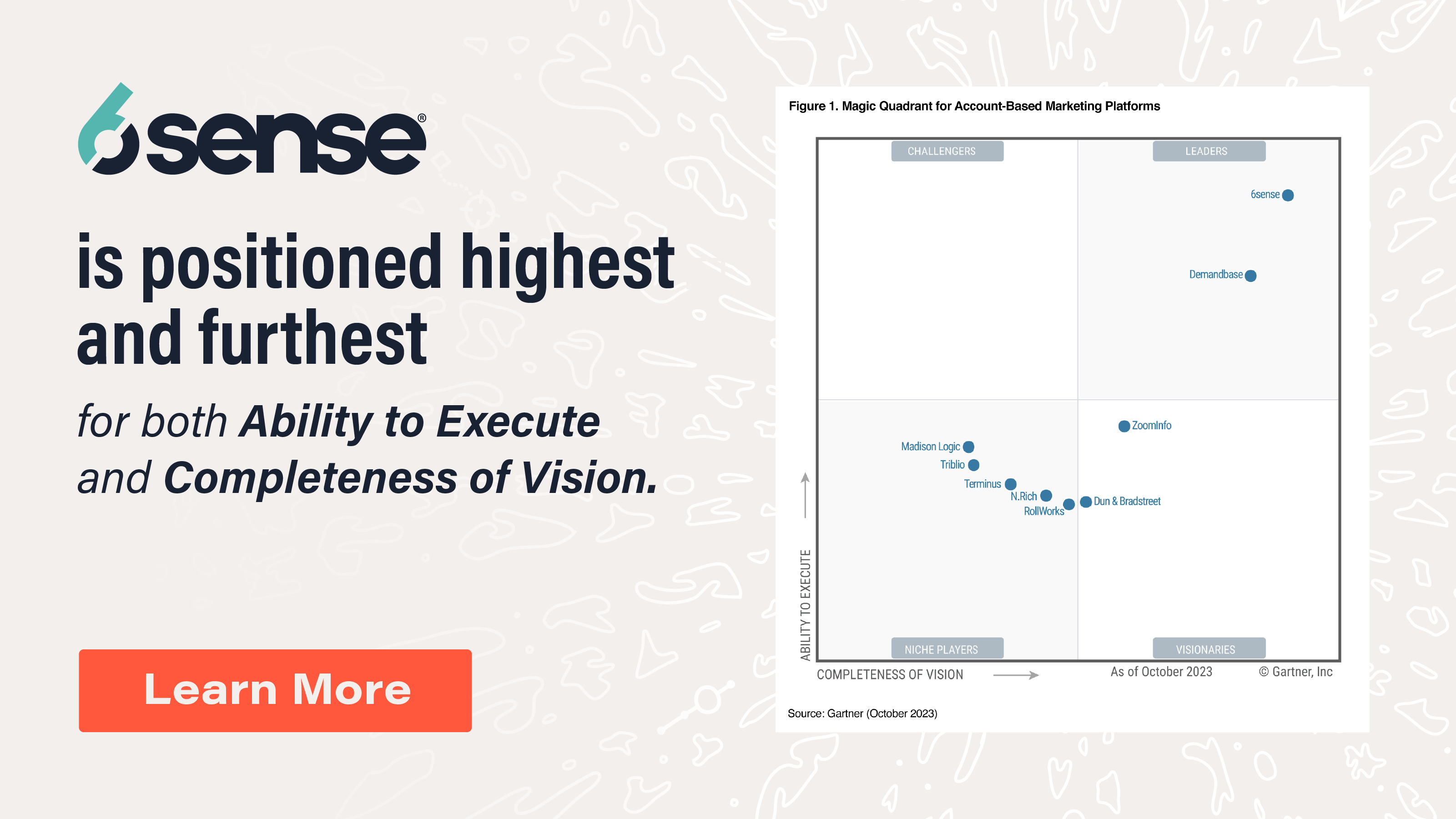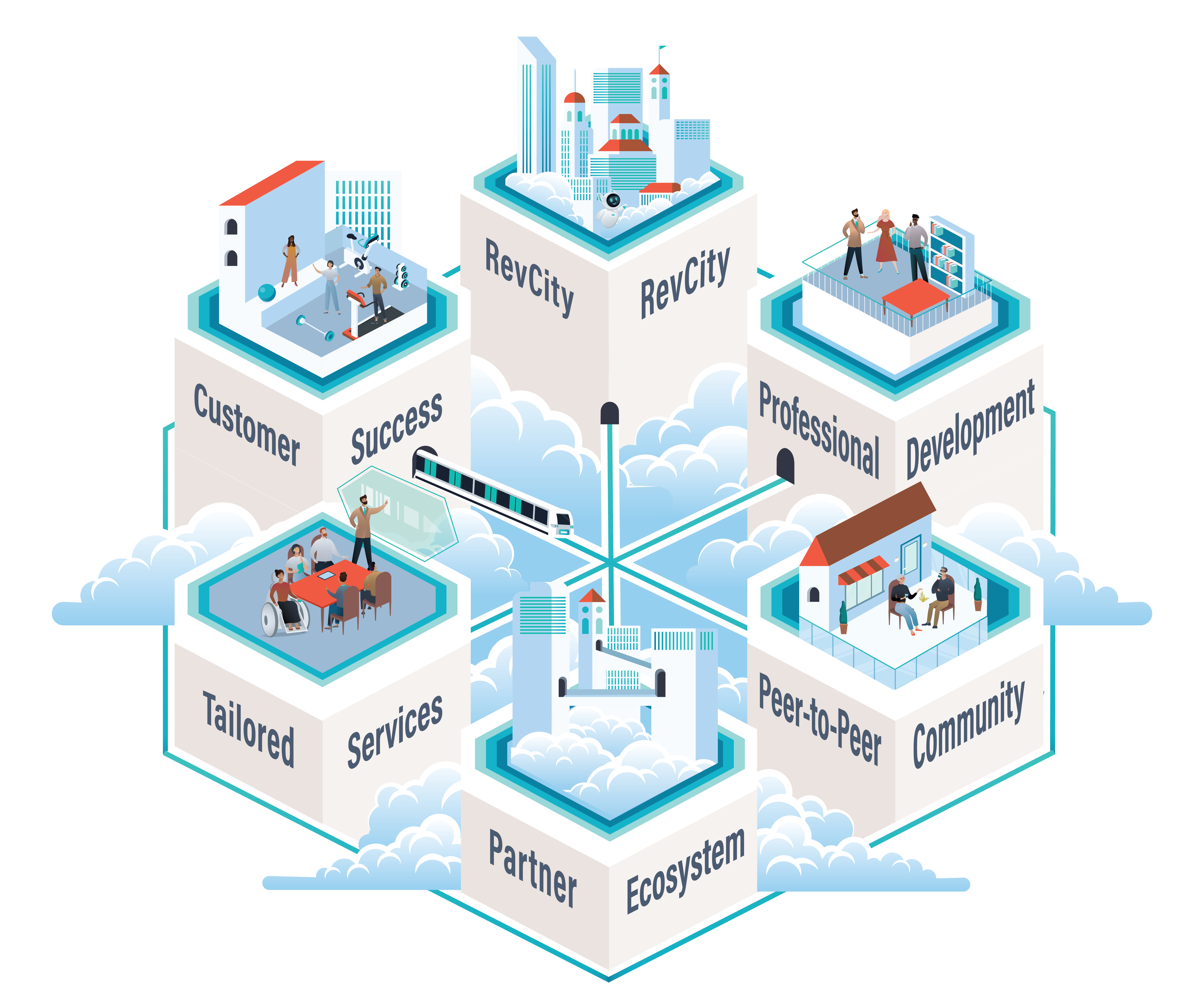To compete effectively, your business needs data that’s timely, accurate, and actionable.
Business Intelligence (BI) refers to the process of gathering, analyzing, and presenting data in a way that enables businesses to make better-informed decisions.
This article will explore the importance of BI and how to create a successful BI strategy. We’ll also compare BI with Business Analytics, as well as give an overview of some of the best BI tools available in 2023, including 6sense’s powerful revenue intelligence platform.
What is Business Intelligence?
Business Intelligence (BI) combines traditional data analysis techniques with modern-day technologies to give organizations an edge.
Examples of business intelligence include:
- Customer analytics that identify trends in behavior
- B2B marketing analytics that use audience engagement metrics to target advertising campaigns more effectively
- Data visualization that takes information from various sources to determine risk and ROI associated with specific investments
Why is Business Intelligence Important?
Business Intelligence (BI) is an invaluable tool for organizations to improve efficiency and reduce costs.
Benefits of Business Intelligence
Here are some of the key benefits of leveraging BI:
- Improved decision making: By understanding customer behavior and market trends, BI enables organizations to make data-driven decisions. With the right tools and strategies in place, organizations can uncover new opportunities and optimize their operations accordingly.
- Increased efficiency: With BI tools such as 6sense’s platform, organizations can automate processes and better manage resources by quickly identifying inefficiencies or bottlenecks in their operations. This allows them to streamline operations and maximize productivity.
- Reduced costs: By using BI tools to quickly identify areas where spend can be optimized or eliminated, businesses can save money while still achieving desired outcomes.
- Better customer experiences: By leveraging customer data collected through BI tools, businesses can tailor experiences based on individual needs and preferences — resulting in improved customer satisfaction that leads to greater loyalty and increased revenue over time.
- Stay competitive: Businesses use BI to stay ahead of the curve by leveraging insights to win and retain customers.
Business Intelligence vs. Business Analytics
Although the terms Business Intelligence (BI) and Business Analytics (BA) are often used interchangeably, there are key differences.
- Business Intelligence enriches data to support organizational or operational decisions in the present. Business Analytics leverages historical data to predict future outcomes.
- BI typically involves analyzing data from existing systems and only requires access to structured data (i.e., specific data stored in a defined format). BA aggregates both structured and raw data (a compilation of different types of data stored in native formats).
- BI gathers real-time metrics for creating performance benchmarks and recognizing market trends. Data mined through BA can be used for forecasting and predictive modeling.
The advantages of using BI and BA together can’t be overstated, as it allows organizations to understand current trends and how those trends may evolve.
Develop a Business Intelligence Strategy
Having a well-defined plan for your BI initiative helps ensure processes involved in collecting and analyzing data are effective and results are accurate and accessible.
- Evaluate your current state. Before adding tools or changing processes, make sure they fit into your existing infrastructure.
- Establish objectives. Based on your overall business goals, determine what you want to achieve with this initiative. Set KPIs and benchmarks to track along the way.
- Organize data sources. Locate where different types of data are stored (and how) and build out a map for integration.
- Implement tools. Taking priorities, available resources, and required capabilities into account, select a system that effectively supports your BI efforts.
Best Business Intelligence Tools in 2023
There are a wide range of BI tools available on the market, each offering their own advantages and features, like:
- Data visualization
- Predictive analytics
- Customer segmentation
- Campaign tracking & optimization
- Real-time reporting and alerting
6sense’s platform provides customers with an intuitive user experience and advanced analytics capabilities to quickly and easily get meaningful insights from their data. Its advanced analytics capabilities combined with its intuitive user interface make it one of the best BI tools available in 2023 for businesses looking to stay ahead in today’s competitive landscape.





